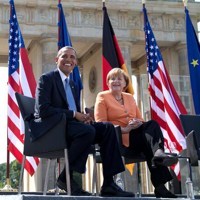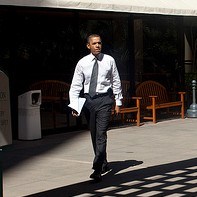
“Russia, whatever they’re doing right now, is not the Soviet Union,” said Washington Democratic Rep. Adam Smith yesterday at a discussion of the U.S. defense budget. Although most of his congressional colleagues would likely agree with that statement, there is no consensus on Capitol Hill about how to respond to a crisis in Ukraine that appears to leave the United States with few options. And while the differences in large part follow party lines, internal divisions within each camp have also surfaced. Democrats appear to generally support, with varying degrees of enthusiasm, the Obama administration’s approach of gradually increasing pressure […]




